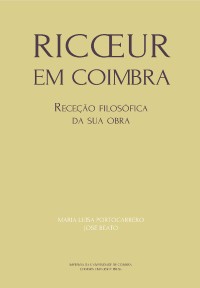Please use this identifier to cite or link to this item:
https://hdl.handle.net/10316.2/38784| DC Field | Value | Language |
|---|---|---|
| dc.contributor.author | Marcelo, Gonçalo | |
| dc.date.accessioned | 2016-03-14T15:13:11Z | |
| dc.date.accessioned | 2020-09-08T23:13:15Z | - |
| dc.date.available | 2016-03-14T15:13:11Z | |
| dc.date.available | 2020-09-08T23:13:15Z | - |
| dc.date.issued | 2016 | - |
| dc.identifier.isbn | 978-989-26-1090-0 | |
| dc.identifier.isbn | 978-989-26-1091-7 (PDF) | |
| dc.identifier.uri | https://hdl.handle.net/10316.2/38784 | - |
| dc.description.abstract | Although Ricoeur never wrote any specific book thematically grounding a project worthy of being called a “social philosophy”, we can still find sparse elements of such a project in his writings. Consequently, it is not impossible to hermeneutically reconstruct those elements in order to put forward something akin to a “Ricoeurian social philosophy”. That philosophy will have the intersubjective constitution of human beings – simultaneously passive and active, being affected by alterity and dependent on patterns of recognition in order to be successfully constituted in a healthy manner – as its starting point, while its goal will be the constitution of just social institutions allowing for a better realization of the principle of freedom. Bearing that utopian and yet mobilizing ideal in mind, this philosophy will also serve as the yardstick with which we can detect pathological phenomena – the so‑called social pathologies famously depicted by Critical Theorists – of social reality, and therefore criticize them. This paper partially reconstructs this “Ricoeurian social philosophy” and presents some of the social phenomena that it enables us to assess and criticize: the critique of ideologies by utopias, the critique of unjust institutions or the analysis of the phenomena of social crises. | eng |
| dc.description.abstract | Embora Ricoeur nunca tenha escrito nenhuma obra especificamente dedicada à fundamentação de uma filosofia social, a verdade é que se conseguem encontrar diversos elementos esparsos de filosofia social nos seus livros e artigos. Por conseguinte, é possível reconstruir hermeneuticamente esses elementos e propor uma filosofia social de índole ricoeuriana. Essa filosofia terá como terminus a quo a constituição intersubjetiva dos seres humanos – e a sua tessitura simultaneamente passiva e ativa, suscetível de ser afetada pela alteridade e ao mesmo tempo dependente do reconhecimento alheio para se poder constituir de forma saudável – sendo o seu terminus ad quem a tentativa de elaboração de instituições que sejam justas e que permitam a melhor realização possível do princípio da liberdade. Tendo como pano de fundo este ideal utópico mas mobilizador da ação humana, esta filosofia acaba por permitir a deteção de fenómenos patológicos – a análise das patologias sociais tornada célebre pela Teoria Crítica – da realidade social e possibilita a crítica desses mesmos fenómenos. Este artigo reconstitui essa filosofia social e apresenta alguns dos fenómenos sociais cuja crítica ela possibilita (por exemplo, a crítica das ideologias através do recurso à utopia, a crítica das instituições injustas ou alienantes, a análise dos fenómenos de “crise” social que atravessamos, entre outros). | por |
| dc.language.iso | por | - |
| dc.publisher | Imprensa da Universidade de Coimbra | por |
| dc.relation.ispartof | http://hdl.handle.net/10316.2/38776 | por |
| dc.rights | open access | - |
| dc.subject | Critical Theory | eng |
| dc.subject | Ethics | eng |
| dc.subject | Institutions | eng |
| dc.subject | Paul Ricoeur | eng |
| dc.subject | Social Philosophy | eng |
| dc.subject | Ética | por |
| dc.subject | Filosofia Social | por |
| dc.subject | Instituições | por |
| dc.subject | Paul Ricoeur | por |
| dc.subject | Teoria Crítica | por |
| dc.title | A filosofia social de Paul Ricoeur | por |
| dc.title.alternative | Paul Ricoeur's social philosophy | eng |
| dc.type | bookPart | por |
| uc.publication.collection | Ideia | por |
| uc.publication.firstPage | 81 | - |
| uc.publication.lastPage | 98 | - |
| uc.publication.location | Coimbra | por |
| dc.identifier.doi | 10.14195/978-989-26-1091-7_5 | - |
| uc.publication.digCollection | PB | por |
| uc.publication.orderno | 5 | - |
| uc.publication.area | Artes e Humanidades | por |
| uc.publication.bookTitle | Ricœur em Coimbra: receção filosófica da sua obra | - |
| uc.publication.manifest | https://dl.uc.pt/json/iiif/10316.2/38784/206751/manifest?manifest=/json/iiif/10316.2/38784/206751/manifest | - |
| uc.publication.thumbnail | https://dl.uc.pt/retrieve/11106943 | - |
| uc.publication.parentItemId | 54595 | - |
| uc.itemId | 69366 | - |
| item.grantfulltext | open | - |
| item.fulltext | With Fulltext | - |
| Appears in Collections: | Ricœur em Coimbra: receção filosófica da sua obra | |
Files in This Item:
| File | Description | Size | Format | |
|---|---|---|---|---|
| a_filosofia_social_de_paul_ricoeur.pdf | 772.78 kB | Adobe PDF |  |
Items in DSpace are protected by copyright, with all rights reserved, unless otherwise indicated.
